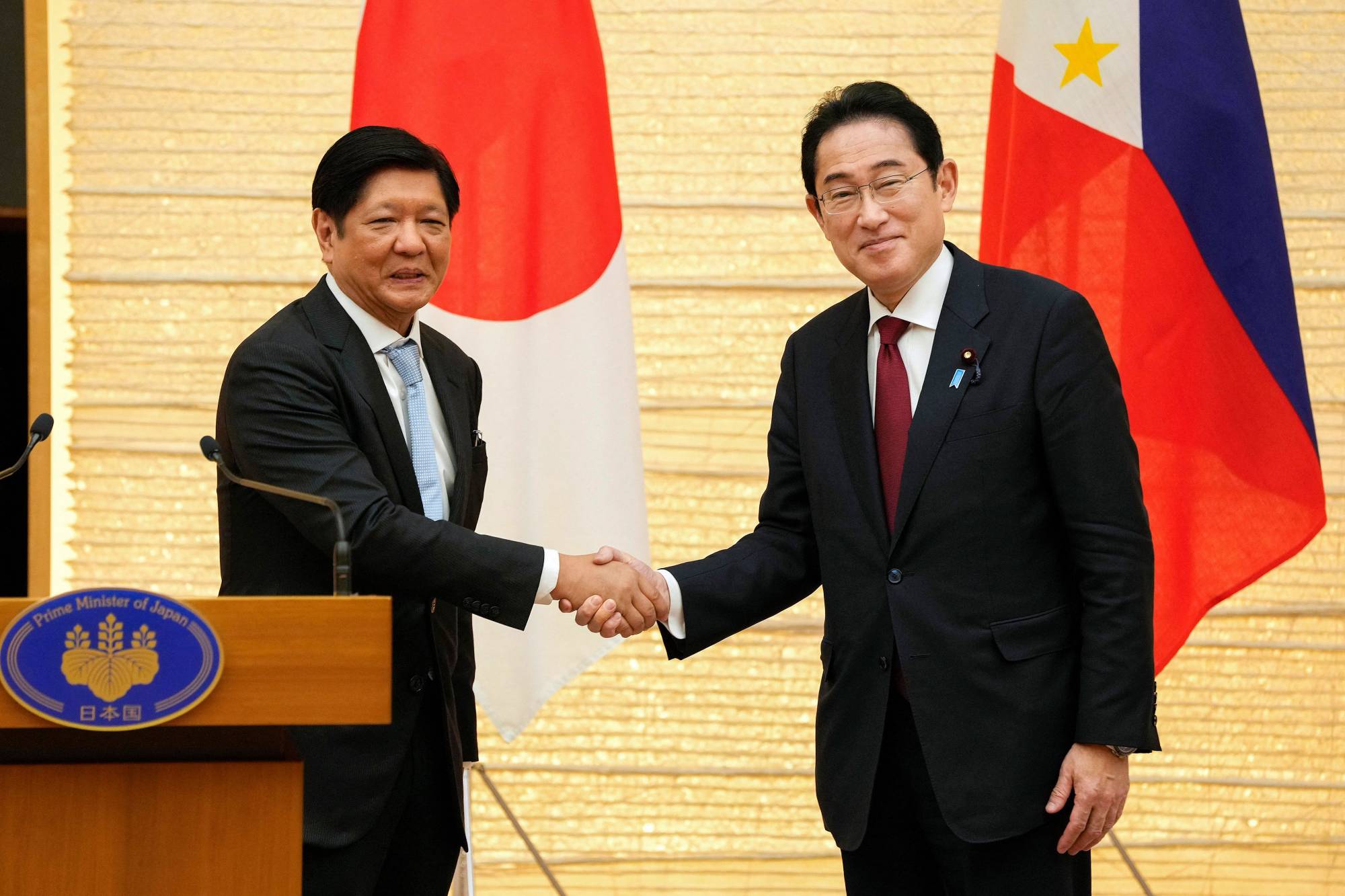Japan and the Philippines signed several key economic and defense cooperation agreements Thursday, as the strategic partners aim to strengthen relations amid growing concerns over China's regional assertiveness.
The deals cover a wide range of areas, including agriculture, renewable energy, health care, digital transformation, infrastructure and defense, and come on the heels of a Philippine-U.S. pact that allows Washington to increase its military footprint in the Southeast Asian country to try and deter Chinese aggression.
“I can confidently say that our strategic partnership is stronger than ever,” said Philippine President Ferdinand Marcos Jr. during a news conference in Tokyo alongside Prime Minister Fumio Kishida.

















With your current subscription plan you can comment on stories. However, before writing your first comment, please create a display name in the Profile section of your subscriber account page.